
Hello~ 沙丘研究所(Dunes Workshop)是一个独立的线上原创内容发布平台,内容有关于城市、建筑、文学、艺术以及留学生活,成员来自哈佛大学设计学院以及麻省理工大学设计学院。 同样,欢迎关注我们的微信公众号“沙丘研究所”,第一手的推送内容会发布在这里;以及 Instagram账号@dunes.workshop 第一手的图像/视频内容将会发布在这里。
The Dilemma of Quality Content on the Internet
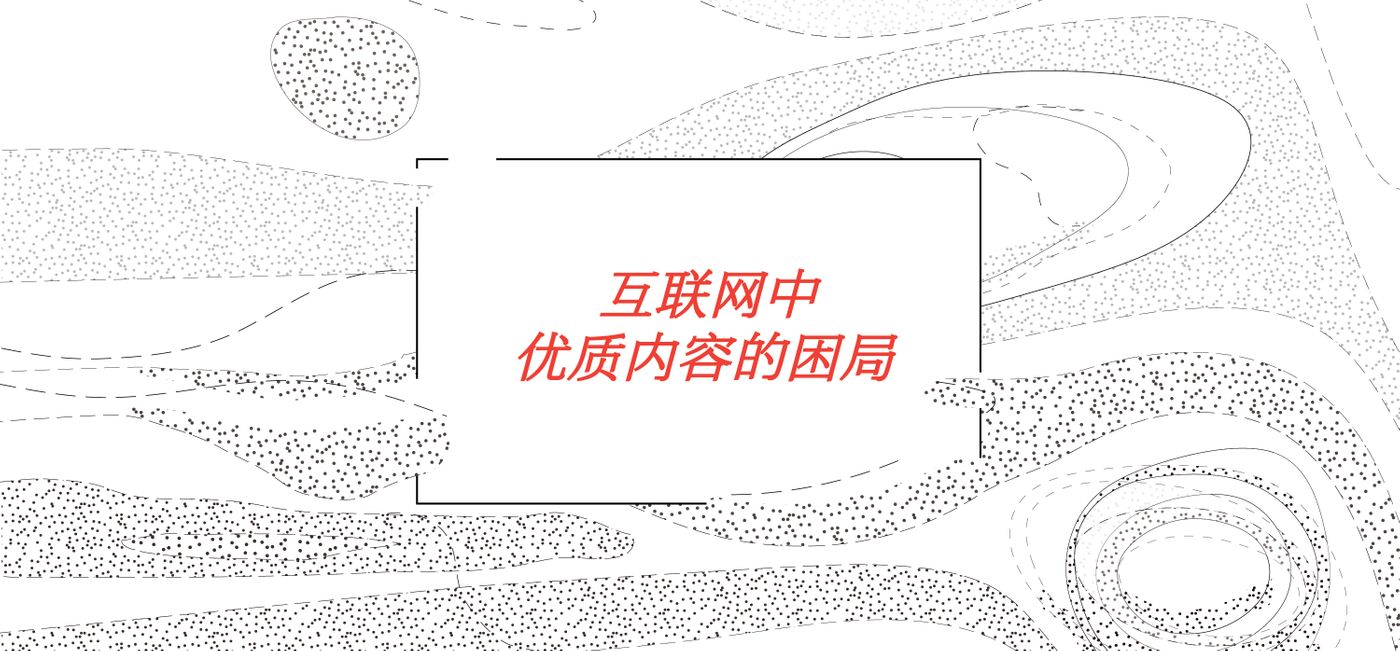
The content of this conversation comes from the online living room on May 16, co-hosted by the Dune Institute and 706 Youth Space.
During the two-hour practice, several interlocutors revolved around "the demise of discussion on the Internet." The main keywords are "public domain", "discussion context", "technology neutrality", "power and capital intervention", "production and dissemination of high-quality content" and so on. Thanks to 706's friends for organizing the text.
The following is from the second half of this two-hour audio discussion. This part of the text draft has the interception of the original sentences, and the merging of some similar items with repeated semantics. For a more complete text draft, you can click here to jump:
Retrospective | The Death of Discussion in the Internet (Part 1)
Retrospective | The Death of Discussion in the Internet (Part 2)
Guest profile
Guest: Fang Kecheng , Assistant Professor of School of Journalism and Communication, Chinese University of Hong Kong, Ph.D., University of Pennsylvania.
Guest: Huang Chen , Assistant Professor of the Department of Political Science, School of International Relations, Renmin University of China, Ph.D.
Interviewer (Moderator): Chen Feiyue, SMArchS Urbansim, co-founder of the Dune Institute.
Interviewer (Moderator): Li Yalun , graduate student of architecture at Harvard University (M.Arch II), bachelor of architecture at Syracuse University, minor in philosophy, co-founder of Dune Institute.
Guest (temporary join): Xu Yiqing , Assistant Professor of the Department of Political Science of Stanford University, Ph.D. of the Department of Political Science of MIT, Master of China Economic Research Center of Peking University (now National Development Institute).
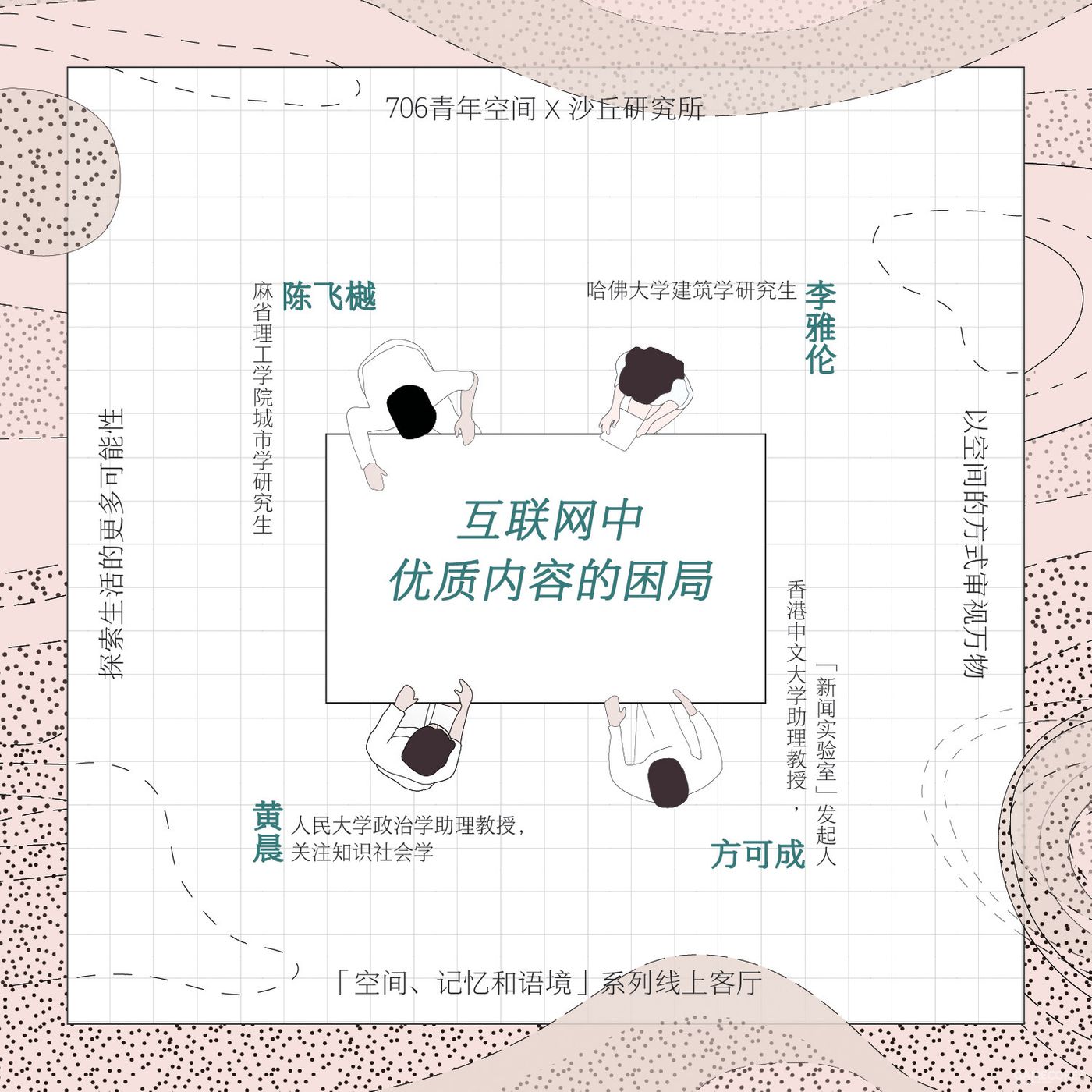
01 Li Yalun:
Let's start with the dissemination of high-quality content - it was also asked in the question just now, and I think it is more relevant. There seems to be a difficulty in the dissemination of such high-quality content on the Internet: people may be overwhelmed by a lot of information, and they cannot distinguish which are higher-quality information, and high-quality information may be more difficult to disseminate. For example, everyone's attention span (attention duration) is very short. I don't know what Teacher Fang Kecheng thinks about this. In addition, when we say "high-quality content", do we also bring a more elitist fantasy of belonging to the elite?
02 Chen Feiyue:
Yes, my own article ( referring to the "Death of "Discussion" in the Internet, click here to jump ) mentioned a technology called "3F" - if anyone has an impression - first need Say, this is not what I sorted out. The book is called Censored Distraction and Diversion Inside China's Great Firewall by Margaret Roberts, where she summarizes the 3F principles. (Roberts, Margaret E. 2018)
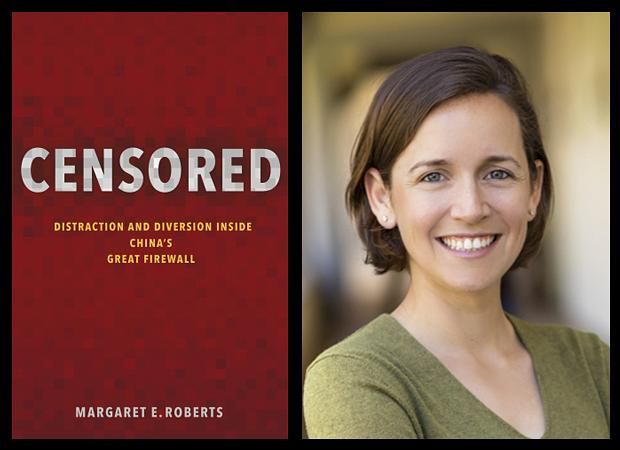
I think the last F in her 3F theory is the last F, which is called flooding. After some of our information is sent out, there will be more opinions. They will be verification or real hammers, or anti-real hammers. At this time, we will keep coming up with new theories, new opinions, new viewpoints, new evidence. These may eventually make it impossible for the so-called melon eaters to identify which side is right, but it seems to make sense. With the continuous flooding policy, many people feel a little numb to this matter, tired, and will not follow up. And this is also a big problem faced by high-quality content.
But if we don't let more such opinions and dissents come out, will it become the monopoly of the mainstream media and elites in the past? This is also a relatively large dialectical relationship, and I would like to hear the opinions of the two teachers on this aspect.
03 can be done:
I think that someone said in the comment area just now that no matter what we discuss about high-quality content, it seems to be subjective, and in the end, it becomes a situation of who has the right to decide high-quality content. What I want to say is that even if this matter involves subjectivity, even if it is difficult for you to find absolutely objective standards, it is still worth doing. I think the most important thing is that when everyone sincerely discusses what is good content, a consensus can be gradually formed.
The problem now is that often many content producers are not sincere, but intentionally produce spam. There are many purposes for this kind of spam, one of which is traffic.
Some time ago, everyone mocked a way of writing: "What the hell is going on with this, the editor will show you today. Oh, this thing seems really strange, and the editor doesn't know what's going on. What's going on? What's going on, I invite everyone to discuss it in the comment area."
Your production purpose is not to produce high-quality content, but to produce traffic and monetize it with advertising. When these people do it, I don’t think it means that they intend to pollute our environment. It’s just a way to make money. It’s not easy for everyone to make money these days. It’s just that this platform and business rules have given them a way to make money. So if everyone is sincere to produce good content, then I think the standard behind him is actually easier to reach a consensus.
We sometimes say that we can't judge the content well, so we don't judge. In fact, you do not judge itself is an attitude, you do not choose is also a choice.

Let's take a simple example - imagine, if you were the CEO of Google, how would you decide how to sort Google's search results? If you don’t care about it at all, and write a rule there, people don’t care how to use this rule, and the final result must be that you can’t see the results of your search, and it must be someone else desperately matching your keywords to their own website. , but the content is rubbish. So you must have your own choice.
Google made a choice last year, which is to greatly improve the ranking of original and high-quality news media. Of course, there will be some controversy. It may be said that the old search is the content of the "New York Times", and the "New York Times" is taking advantage of it, right? But I think if you compare the two scenarios, the latter scenario is obviously better.
I think that on the other hand, it is not just about people. With the development of natural language processing capabilities, I think it is possible to find some ways for machines to deal with it. For example, to judge the complexity and repetition of a sentence, and to judge the diversity of the meaning expressed by a piece of content itself, I think it can be trained. Training this machine to recognize this content to a certain extent, and at the same time can establish some standards to regulate the degree of complexity, intensity, extreme degree, etc. used by individuals.
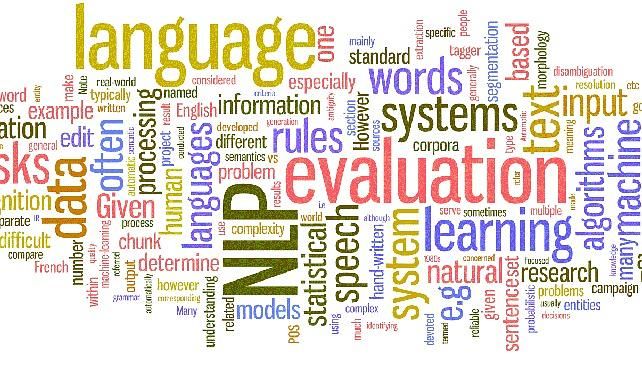
So I think in this regard, the cooperation between machine and human is possible. The reasoning behind this is that it depends on whether you are sincerely pursuing this issue: as long as you are sincerely pursuing this matter, then I believe there will be a lot of room for improvement.
04 Chen Feiyue:
In our so-called discussion, our starting point is to hope that this discussion will get better and better, and more and more towards the direction of goodness. And just as Mr. Fang Kecheng just said, we must also understand that not every operator and every content manufacturer has such a beautiful purpose. There are a lot of people - we can't call them evil, just as Fang Kecheng said just now, they need to make a living, need to monetize through this ad, need this traffic, so maybe they're going to do this . But technology may be able to help us improve the status quo, whether it is in sorting, or in a screening of content. So is it possible to make our high-quality content appear more in the front position through this kind of processing, and then filter some of our so-called text garbage?
05 Huang Chen:
I think your tone on this question is still very cautious and humble. I think that promoting high-quality content is not elitist, but should be advocated confidently. why? Before the 19th century, as you just mentioned, only a few people were qualified, capable, and even had blood and positions to spread information. This is actually a phenomenon of an unequal society before modernization; and what we are now is what we are now Provide high-quality content for dissemination, and remove inferior content. But being despised and eliminated because of your knowledge, your ability, and the inferior products you produce is neither discrimination nor elitism.

Each of us has the same qualifications, the same access, the same opportunities to take the college entrance examination or apply for studying abroad, and then if you are in the same market as us, you go to write the old marketing account, and I go to Well written, then this thing does not discriminate against you because of blood and identity as in traditional society, but we eliminate it in a fair procedure, according to the standards within the professional community or according to the standards of high-quality content, then this is fair. rather than elitist. We call on all people to do it because all people are now qualified, not only some people, but only some people will eventually make it and do it with the best quality. It's equivalent to the whole class taking the test together fairly, and only one or two people get 100 points, but we don't think it's unfair, right? If you are not allowed to take the test, you will feel unfair.
Whether you do well in the test is another matter, so I think it is the same as studying hard and improving every day. We are advocating a society with high-quality content and a good Chinese Internet. This is not elitism. There is no need for us to be like this in the face of populism and malism. We should be righteous. We are for everyone's sake and for the good of the friends around us.
The second criterion for quality content is actually about "procedural fairness". The procedure is fair, but the outcome is not necessarily fair. So how do you establish a standard for high-quality content? I think the standard of judgment is still in accordance with our previous rule of thirds.
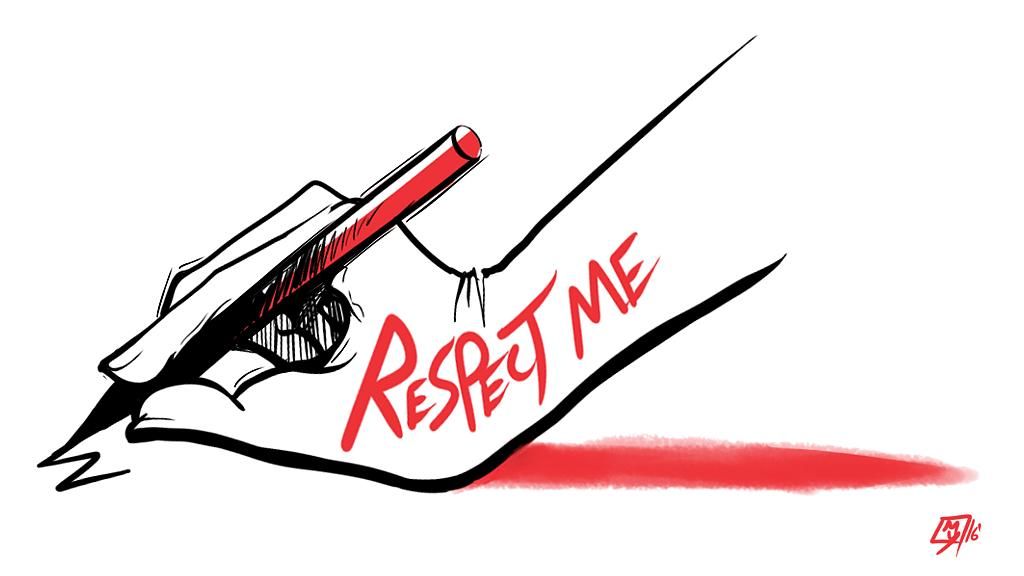
First, it cannot be judged by power. It can't be whoever has the most power, then this thing has nothing to do with the content. It is equivalent to the most primitive jungle logic. "Whoever is fierce in a fight is right" is right. After the establishment of human civilization, we have actually started to think this way since Plato and Confucius. It is actually wrong. We have to think about what is good and what is good.
The second is: capital cannot have the final say. For example, whoever has money can't have the final say. Having money is only a return on his investment and business skills, not in other aspects. We have a term in political sociology called the blocking principle, which means that you are successful in this field, but you cannot arbitrarily carry the advantages and privileges of this field to another field.
The third method, we have to have norms. Norms come from different industries, different academic communities, and industry communities. For example, in the pop music industry, Yang Kun and Jinglei have the most judging standards. Of course, Yang Kun is also very qualified to judge in the mainland, but this qualification is not an absolute academic community. Whoever contributes more and is more recognized in the academic community, then his definition of high-quality content is justified. For example, let Mariah Carey come, she must have a greater voice in the pop music industry than Yang Kun, Yang Kun will definitely say the same as us: Come, Master Ma, you teach us how to sing? What is premium music content? Whether it's music, academia, architecture or media, in every industry, I think the most important thing is to build our academic community. A fairly impartial academic community, with three hundred and sixty lines of work, and the champions of every line—the brick-brick mover also has the skill of moving bricks, and there are also masters who mechanize brick-moving, and others can be very successful in their careers.
If the industry community is used to establish the standard, I believe that the current tendency of anti-intellectualism and populism will be greatly improved. Of course, this also requires the tolerance of the political and economic environment. I have seen several comments that this is superstitious authority, which contradicts what I said before. This is not called superstitious authority, because I just gave an example when I talked about superstitious authority. For example, young people like me and Mr. Fang Comparing people with old professors such as mentors and leaders, if we see whoever puts forward the correct academic arguments, we believe whoever has it, then this is called rational argument rather than superstition. Superstitious authority refers to being based on his identity, not based on the content of the argument provided by procedural justice. Based on his leadership, age, etc., this is superstitious authority. Mysteries are irrational, but rational arguments are not. For example, if we assume that Jessie J and Mariah Carey sang badly, and we still think that she sang well, that is called superstition of authority;
06 can be done:
Another point is that we do think that this cannot be regarded as superstitious authority, but we know that in various communities, there is a certain degree of "hegemony", hegemony (Antonio Gramsci, 2016), this It's still possible. What reason do you think people should use to judge? Maybe your judgement mode of thinking is what your mentor told you, so there is still some flaws behind it.
I think the establishment of a community, itself and the discussions within the community and the discussions within the community, cannot be perfect. So we have to learn to encourage the weaker, younger, more heretical, and marginalized people in the community, and give them enough space to resist. I think this is a healthy community, so I don't think the community itself should be a solid existence.
07 Xu Yiqing:
Huang Chen, Fang Kecheng and I still have a little bit of disagreement. I think everyone has overlooked an essential change in the media industry in recent years, which is the decline of traditional serious media.
This is mainly affected by the market and technology. After Trump came up recently, things like The Washington Post have survived a lot better. But it was very poor before, which means that if the value judgment of the community of the same industry as mentioned by the two teachers just now is lost, then the rest is completely dependent on the market? But the market cannot solve all problems in the media field, because people are very irrational animals, especially when your stake (risk of betting) is very low. When people participate in market behavior, they use real money to buy something. If you make a wrong judgment and buy the wrong thing, you will be punished, but if you believe in the wrong thing, you will not subject to punch.
Therefore, in the public opinion environment, it is easy for people to be led astray. For example, in the previous public opinion environment in the United States, publishing in the three major newspapers and five major newspapers, if you sent a fake news, it was a very big reputation cost (reputation cost). Secondly, the above does not allow you to do more informative reports, which is a very essential problem. As media people, what is our own rational choice? We can go to study like Mr. Fang, we can go to study and become a doctor and become a teacher. This is another way to tell the truth; another way is to write our own public account and make money ourselves.
According to some studies, if you are doing a large team, such as an official account or a self-media - which can maintain a team of 200 people - then the work of these 200 people is not mainly about editing, editing and editing. It's not going to ask people on the ground what's going on, not looking specifically at what's going on in the world, as The New Yorker and The New York Times do. These 200 people were actually writing reviews, and they wrote really well and insightfully, and they turned into 100,000+. Actually, it's just an opinion.

Every time a public opinion event occurs, there will be countless opinions that are constantly repeated. But that doesn't add to the quality of this information itself, which is the biggest problem we've had. I don't think this is something that the democratization of journalism can solve. Of course, why we see some students feel a little bit depends on where you are on the political spectrum. In fact, the degree of domestic polarization is not as high as that of the United States. I feel that this is due to some interference. Although it interfered with many high-quality accounts like Mr. Fang, it also interfered with some particularly bad media people like Alex Jones in the United States. In addition, our politics is relatively homogenized and adheres to the leadership of the party. In order to cater to the mainstream, the mainstream is still carried away by the national mainstream media. As you can see from voting, our people are much more homogeneous than the United States. So we see different opinions in the media field, and if you pinch off a part on the left, and then pinch off a part on the right, it will become homogenized again.
It is very difficult to leave high-quality content, because if you are a really powerful media, or a media with ideal news, high-quality content cannot be done. The small number is not because you are unwilling to do it, but because it is impossible for you to send a team to Wuhan or find a hotel somewhere to stay for a long time. This is what I think is the essence of the problem, and I don't think there will be a good handle.
08 can be done:
So economists have just given some economic analysis, thinking that news itself is not a good business (business), at least not a good business in our time, there may be no way to make it a good destination , I don't know if this is the opinion of the nature that Teacher Xu Yiqing made such a conclusion here just now.
09 Xu Yiqing:
I am a relatively pessimistic person, and these recent events have made me more and more pessimistic. I just convey a message I heard from Mr. Wang Shuo. His understanding of the market structure is something I didn't know before. I didn't know the stick cost of the media before (meaning that false information sticks to readers' perceptions and then refutes rumors) cost) will play such an important role in the process of news gathering and editing. I think the strength of the economy is still very important.
The other one is about human nature. A former teacher of mine did a study, his name is Adam Breakki. Recently, many people have asked why Americans believe in rumors so much, think Bill Gates is a big conspirator, COVID- 19 is nothing at all and so on. And his research found that after you have been rumored and believed, it is very difficult to refute the rumor, and it may cost ten times the cost to refute the rumor.
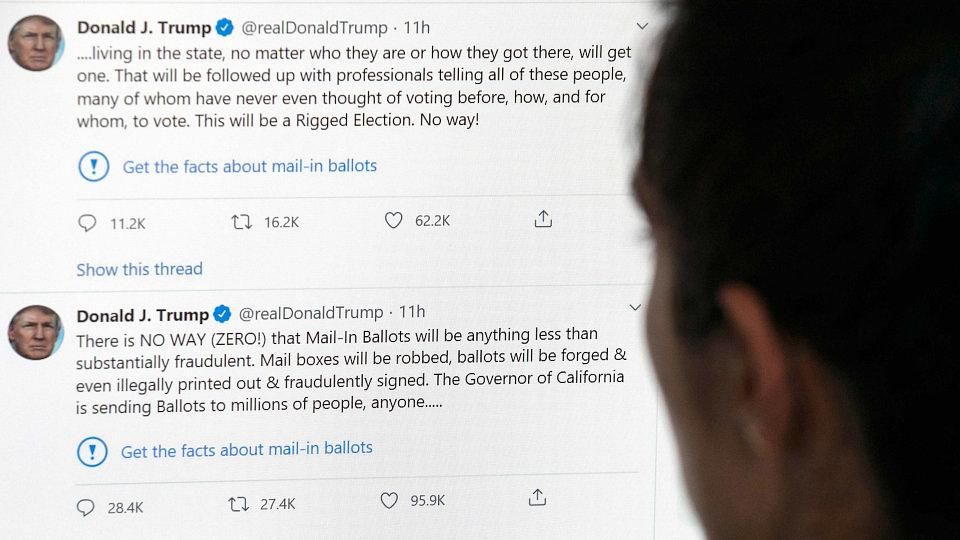
The only effective way to debunk a rumor right now is to ask someone you already trust to tell you it's wrong. Let’s say someone is a Republican voter or a Trump fan and believes Alex Jones’ rumor that COVID-19 is a Bill Gates conspiracy and China made it. The Democrats have nothing to say if they want this person to stop believing this rumor. You have to get Trump himself or someone like Alex Jones to come forward and tell you it's fake, so that it's possible to pull back a little bit.
Human nature is like that. In this day and age, how can you improve the quality of information you get? For individuals in society, if you are attentive enough, it is possible to find ways to find those more reliable sources. But for the whole society, I am a little pessimistic about whether this state can be achieved.
10 can be done:
I'd like to add one more example of investigative reporting that takes a lot of money. This year's winner of the biggest Pulitzer Prize in journalism -- the Public Service Award -- is a newspaper with a small local circulation in Alaska, but it's partnered with ProPublica, a nonprofit investigative journalism outlet. Journalists travel and spend a year or two investigating, all of which are financed by ProPublica. Where did the money for ProPublica come from? provided by the foundation.

We see a clear trend in the United States now: the American news media industry is gradually splitting into two ways. One is paid by readers, such as The New York Times, which relies on subscriptions from a large number of readers to continuously produce high-quality news; the other is funded by foundation support. These foundations are not for making money, but want to use the money to generate social influence, so this can also promote the production of a batch of high-quality content. In addition, the quality of commercial websites and media supported by the traditional model of paid-for-traffic advertising is indeed getting worse and worse.
11 Chen Feiyue:
I have a deep sympathy for some of the discussions made by Teacher Xu just now. After our article was posted on the machine core network, there was a high praise comment: "The joke is eating away the solemnity that is left." This point may be related to the rules of capital - the rules it sets have on the content of the content. Choice - There is a lot of relevance, that is, whether we are doing a very thankless thing.
If we do things according to the rules of capital, it may be really difficult to produce high-quality content in this regard. As Mr. Xu mentioned just now, a common practice in self-media is to comment on an event that has already been reported.
I've heard a term called "Internet Archer", which refers to some self-media teams. They are not responsible for digging out the truth, not responsible for reporting the facts, they do not do thankless things, but make an opinion or emotional addition to what has already been exposed. It's as if they were adding more fuel to the fire that was already burning.
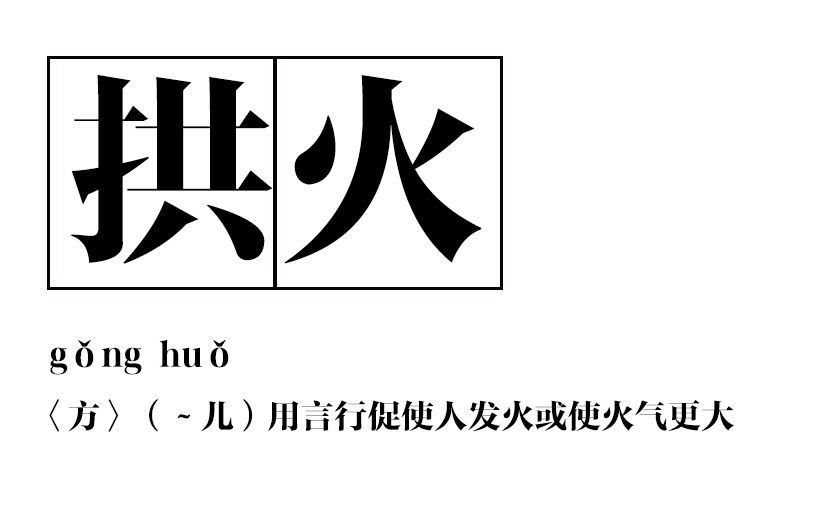
They don't really create, they just move the content back and forth. We may need the former more, to do more thankless things. But if we only rely on capital rules, it may still be very difficult to generate high-quality content. When all our best minds are not doing this (producing high-quality and serious content), the discussion environment will be more like what Mr. Xu said: the serious content of the media is constantly being lost. This is our feeling, I wonder if Mr. Huang has some views on this.
12 Huang Chen:
First of all, I also agree with this pessimistic conclusion. After all, the Internet environment cannot be completely improved immediately like the Age of Enlightenment. But in comparison, did the matter of believing and spreading rumors exist in ancient times, or did it only occur with the birth of the Internet and the modern information society? Of course it was in ancient times. According to cognitive science, in Kahneman's terms, the so-called "System 1" - that is, direct judgment based on perceptuality. For example, seeing George W. Bush considers kindness -- (which takes precedence over rational brains). Therefore, no matter how the Democratic Party promotes policy rationality, some people will vote for Bush Jr.
Instinctively speaking, the perceptual system takes precedence, and the rational judgment system takes precedence. And it is only for those of us who are intellectuals, or what I just said within the community, that the power of the rational system overwhelms the power of the sensuous system. This is the law that humans have even said may have been the case for 4.6 billion years since there were cellular organisms. So there is no need to be particularly pessimistic, because this state has existed since ancient times. On the other hand, for example, in today's seminars, I can hear the speeches of Teacher Fang and Teacher Xu, and at the same time, I can see that there are many high-quality questions, and some information in certain fields can be temporarily changed. Better, then I'll feel good about it. You see, on the contrary, I, who have various restrictions every day in Beijing, and who dare not even open an official account, are more optimistic. So I think that in the future, all of us will belong to the Chinese youth. In fact, human beings have always had many bad things, so there is no need to be too pessimistic all the time.
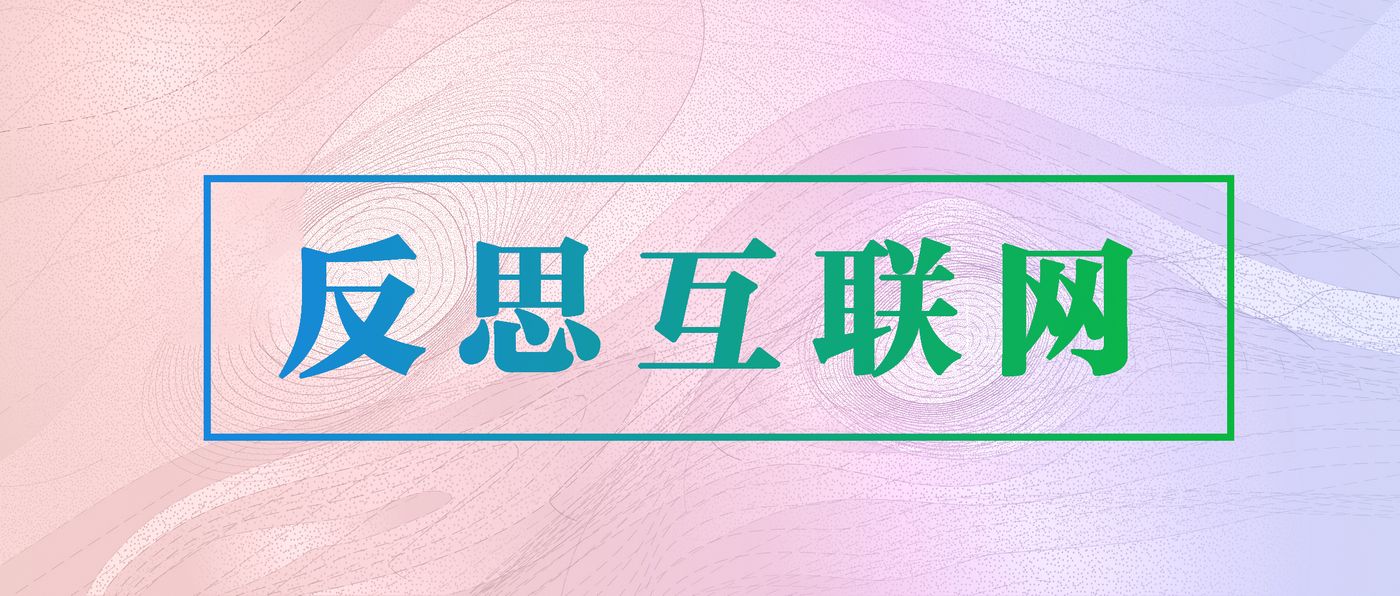
references
This article only intercepts the discussion of "high-quality content" in the second half, but the references are not deleted.
[1] The demise of "discussion" in the Chinese Internet. WeChat public account "Dune Research Institute" (click to jump)
[2] [Added] Harold. Ines, translated by He Daokuan. Dissemination bias [M]. Beijing: Communication University of China Press, 2013.
[3] [German] Jurgen. Habermas. Translated by Cao Weidong, Wang Xiaojue, Liu Beicheng, Song Weijie. Structural transformation of the public sphere [M]. Xuelin Press, 1999.
[4] [America] Edited by Willis Barnstone. Translated by Xichuan. Conversations of Borges [M]. Guangxi Normal University Press, 2014.
[5] The search engine Baidu is dead. News Lab. From Huxiu.com: https://www.huxiu.com/article/282406.html. [2020.05.22] (click to jump)
[6] Tichenor, Phillip J., George A. Donohue, and Clarice N. Olien. "Mass media flow and differential growth in knowledge." Public opinion quarterly , 1970.
[7] Translated by Bao Yaming. Cultural Capital and Social Alchemy. [M]. Shanghai People's Publishing House, 1997.
[8] [America] Neil Postman, translated by Zhang Yan. Entertaining to Death [M]. Guilin: Guangxi Normal University Press, 2011.
[9] [America] Case. R. Sunstein. Translated by Bi Jingyue. Information Utopia: How Everyone Produces Knowledge [M]. Beijing: Law Press, 2008.
[11] Sesame Street Season 1 (1969) Sesame Street Season 1. Beauty: https://www.douban.com/doubanapp/dispatch/movie/2153585. (Click to jump)
[12] [Add] Marshall. McLuhan. Translated by He Daokuan. Understanding the Media: On the Extension of Humans [M]. Nanjing: Yilin Press, 2019.
[13] [French] Michel Foucault, Liu Beicheng and Yang Yuanying. Discipline and Punishment [M]. Beijing: Life·Reader·Xinzhi Sanlian Publishing House, 2003.
[14] [English] George Orwell, translated by Liu Shaoming. 1984 [M]. Beijing October Literature and Art Publishing House, 2010.
[15] [America] Owen Goffman, translated by Feng Gang. Self-presentation in daily life [M]. Peking University Press, 2008.
[16] Roberts, Margaret E. Censored: Distraction and Diversion Inside China's Great Firewall [M]. Princeton University Press, 2018.
[17] [Italian] Antonio Gramsci, translated by Cao Leiyu, Jiang Li and Zhang Su. Notes in Prison [M]. Henan: Henan University Press, 2016.
[18] [English] Neil Ferguson. Translated by Zhou Kui. Squares and Towers [M]. Beijing: CITIC Press, 2020.
Extended literature
The extended literature refers to all the content in the first and second half of the two-hour session. This article only intercepts the discussion of "high-quality content" in the second half, but the following extended literature has not been deleted.
[US] Neil Postman, translated by He Daokuan. Technopoly: The Surrender of Culture to Technology [M]. Beijing: Peking University Press. 2007.
[English] Aldous. Huxley. Translated by Wang Bo. Brave New World [M]. Chongqing: Chongqing Press, 2005.
[Added] Paul. Haier, David. Crowley. Translated by Dong Lu, He Daokuan, Wang Shuguo. The History of Communication: Technology, Culture and Society [M]. Beijing: Peking University Press, 2011.
[French] Jean Noel Capferre. Translated by Zheng Ruolin. Rumors: The World's Oldest Media [M]. Shanghai: Shanghai People's Publishing House, 2008.
[US] Thomas Sowell. Written by Zhang Yayue, translated by Liang Xingguo. Intellectuals and Society [M]. Beijing: CITIC Press, 2013.
[US] Richard A. Posner. Translated by Xu Xin. Public Intellectuals [M]. Beijing: China University of Political Science and Law Press, 2002.
[America] Kong Feili. Translated by Chen and Liu Chang. Calling the Soul: The Great Panic of Chinese Sorcery in 1768 [M]. Shanghai: Sanlian Publishing Co., Ltd., 2014.
[US] David Swartz, translated by Tao Dongfeng. Culture and Power: Bourdieu's Sociology [M]. Shanghai: Century Publishing Group, 2012.
[French] Pierre Bourdieu. Distinction: A Social Critique of Judgment [M]. Beijing: Commercial Press, 2015.
[U.S.] Yang Guobin, translated by Deng Yanhua. Connecting force: Chinese netizens in action [M]. Guangxi: Guangxi Normal University Press, 2013.
[English] John Milton. Translated by Wu Zhichun. On Freedom of the Press [M]. Beijing: Commercial Press, 1989.
[中] Huang Chen. From "People's Democracy" to "China Model": The Evolution of Contemporary Chinese Democracy (1978-2008) [D] Beijing: School of International Relations, Renmin University of China, 2016.
[America] Daniel Kahneman. Hu Xiaojiao, Li Aimin, He Mengying translation. Thinking, fast and slow [M], Beijing: CITIC Press, 2012.
[America] Allport. Liu Shuijing, Liang Yuanyuan, Oriole. The Psychology of Rumors [M], Shenyang: Liaoning Education Press, 2003.
[French] Michel Foucault, Liu Beicheng, Yang Yuanying and translation. Madness and Civilization [M], Beijing: Life·Reader·Xinzhi Sanlian Publishing House, 2012.
[English] Peter Burke, translated by Chen Zhihong, etc.: The History of Knowledge Society (Part 1 and 2), Zhejiang University Press, 2016 Bei Dao. The Rose of Time. [M], Beijing: Chinese Literature and History Press, 2005.
Bucher, Taina. If...Then: Algorithmic Power and Politics [M]. NEW YORK: Oxford University Press, 2018.
Pippa Norris. Civic Engagement, Information Poverty, and the Internet Worldwide [M]. Cambridge University Press, 2001.
Jonathan Wolff .An Introduction to Political Philosophy[M].Oxford University Press.Kello, Lucas. The Virtual Weapon and International Order [M]. NEW HAVEN; LONDON: Yale University Press, 2017.
Tony Zhiyang Lin,Xiaoli Tian. Audience Design and Context Discrepancy: How Online Debates Lead to Opinion Polarization[J]. Symbolic Interaction,2019,42(1). Available at: http://www.360doc.com/content/18 /1119/09/10134696_795823967.shtml. PRINCETON; OXFORD: Princeton University Press, 2018.
Timothy Cheek. The Intellectual in Modern Chinese History. New York: Cambridge University Press, 2016
Zhidong Hao. Intellectuals at A Crossroads: The Changing Politics of China's Knowledge Workers. New York: State University of New York Press, 2003
Like my work?
Don't forget to support or like, so I know you are with me..
Comment…